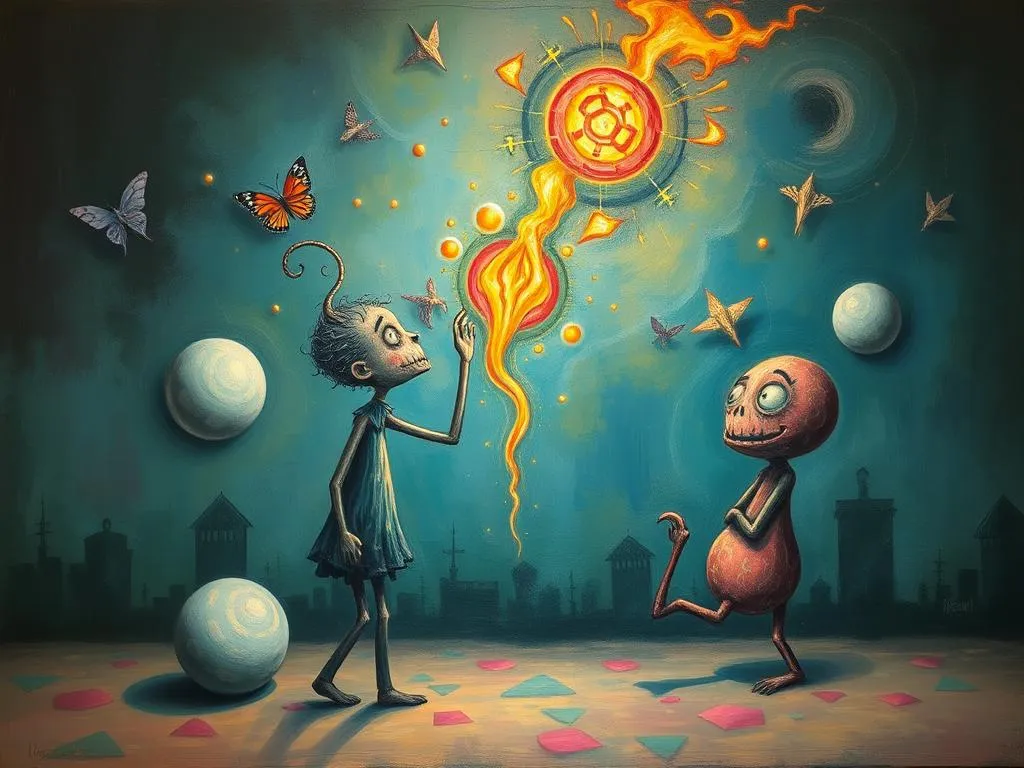
Have you ever woken up in a cold sweat after dreaming about a fatal disease? It’s unsettling, isn’t it? While it might feel like a horror movie playing out in your mind, dreams about illness—especially severe or terminal diseases—can actually tell us a lot about our emotional and mental states. Think of these dreams as your subconscious trying to communicate somethinчg essential, like a friend nudging you to pay attention. So, let’s dive into the world of dream interpretation together and uncover the symbolism behind these unsettling night visions.
Understanding the Symbols
When it comes to dreams about fatal diseases, interpretations can vary widely across different cultures and psychological frameworks. Traditionally, many cultures view dreams as messengers or reflections of our innermost thoughts and fears. For instance, in Eastern traditions, such as those found in Hinduism and Buddhism, dreams about illness might symbolize a need for spiritual healing or a warning to pay attention to your physical and mental well-being.
On the other hand, in Western psychology, particularly through the lens of Freudian and Jungian analysis, dreams are often seen as manifestations of repressed thoughts or anxieties. A dream about a fatal disease might symbolize feelings of vulnerability, fear of loss, or existential dread.
In some indigenous cultures, dreams are viewed as connections to the spiritual realm. Here, dreaming of an illness might indicate a disconnection from one’s spirit or community, signaling a need for healing or guidance.
Challenging common assumptions, it’s essential to recognize that dreaming about a fatal disease doesn’t necessarily mean you’re physically unwell or that you’re destined for doom. Instead, it often reflects underlying fears, stress, or unresolved issues in waking life.
From a psychological perspective, these dreams can connect to the concept of anxiety. When we feel overwhelmed by life’s pressures—whether it’s work stress, relationships, or health concerns—our dreams might manifest those anxieties in the form of sickness.
Common Scenarios
Now, let’s look at some specific scenarios where dreams about fatal diseases often occur. These examples will help illuminate the psychological significance behind them.
Scenario 1: The Diagnosis Dream
Imagine you dream that you’re in a doctor’s office, receiving a diagnosis of a terminal illness. The fear washes over you, and you wake up feeling panicked.
Psychological Significance: This scenario often reflects feelings of powerlessness or a fear of the unknown. It might indicate that you’re facing a situation in your life where you feel out of control, such as a difficult job or a rocky relationship.
Real-Life Example: Take Sarah, a 34-year-old marketing executive who recently faced layoffs at her company. After weeks of stress about her job security, she had a vivid dream of being told she had a rare disease that would prevent her from working. The dream made her realize that her anxiety about her job was manifesting in her subconscious.
Scenario 2: Watching a Loved One Suffer
In another dream scenario, you might find yourself watching a loved one succumb to a fatal disease. The sadness and helplessness can feel overwhelming.
Psychological Significance: This dream often points to fear of loss or anxiety about the well-being of those you care about. It can also symbolize feelings of guilt, especially if you feel you haven’t been able to support them adequately.
Real-Life Example: Consider Tom, who recently lost his mother to cancer. He began dreaming about his best friend being diagnosed with the same illness, which revealed his unresolved grief and fear of losing more loved ones.
Scenario 3: Experiencing Symptoms
Picture this: you dream that you’re experiencing alarming symptoms—perhaps you’re coughing, or you can’t breathe. You awaken feeling as if you’re genuinely ill.
Psychological Significance: This type of dream can often signify stress or anxiety manifesting physically. It’s a reminder that emotional turmoil can take a toll on our bodies and mental health.
Real-Life Example: Lily, a college student under tremendous academic pressure, frequently dreamed about being unable to breathe. This dream highlighted her anxiety about her performance and the overwhelming nature of her coursework.
Scenario 4: Being Diagnosed with an Unknown Disease
Now, let’s consider a dream where you’re told you have an unknown disease, and no one can provide clarity on what it is.
Psychological Significance: This can symbolize fear of the unknown or feeling unprepared for future challenges. It may reflect anxieties about changes in your life that you’re unsure how to handle.
Real-Life Example: Jack, a recent graduate, dreamed that he was diagnosed with an unknown illness just as he was about to start a new job. This dream mirrored his apprehension about entering the workforce and the uncertainty that lay ahead.
Scenario 5: A Fatal Disease in a Public Setting
In this scenario, you find yourself in a public place—like a crowded subway—where people around you are falling ill.
Psychological Significance: This dream may symbolize feelings of being overwhelmed by societal pressures or a fear of collective crises—like a pandemic or economic downturn.
Real-Life Example: Emily, who works in public health, had this dream during a particularly stressful time in her job. It reflected her concerns about the community’s health and her role in ensuring safety and wellness.
What Your Dream Reveals
So, what can you take away from these dreams? While they can be disconcerting, they offer valuable insights that can lead to personal growth. Here are some practical takeaways and reflection questions to consider:
-
Acknowledge Your Fears: Recognize the emotions tied to your dreams. Are they reflecting anxieties in your waking life? Journaling about your dreams can help you explore these feelings more deeply.
-
Reflect on Your Well-Being: Ask yourself, “Am I neglecting my physical or mental health?” Use your dreams as a nudge to prioritize self-care, whether that means seeking medical advice, talking to a therapist, or simply taking time to relax.
-
Identify Sources of Stress: Pinpoint areas in your life that cause you anxiety. Whether it’s work, relationships, or personal goals, acknowledging these stressors can help you develop coping strategies.
-
Engage in Open Conversations: If your dreams involve loved ones, consider discussing your feelings with them. Open communication can alleviate anxiety and strengthen connections.
-
Practice Mindfulness: Incorporate mindfulness techniques into your daily routine. Meditation, deep breathing, or yoga can help reduce anxiety and promote emotional stability.
As you reflect on your dreams, consider these questions:
- What emotions do I experience in my dream, and how do they relate to my waking life?
- Are there specific situations or people that trigger these dreams?
- How can I use these insights to foster personal growth and healing?
Psychological studies indicate that dream journaling can significantly enhance self-awareness and emotional intelligence. By documenting your dreams and the feelings associated with them, you can cultivate a deeper understanding of your subconscious mind.
Closing Thoughts
Dreams about fatal diseases can be deeply unsettling, but they’re more than just nightmares; they’re windows into our fears, anxieties, and emotional states. Instead of fearing these dreams, consider them as opportunities for reflection and growth. They prompt us to examine our lives, confront our worries, and prioritize our well-being.
As you navigate your waking life, remember that your dreams are trying to communicate with you. Approach them with curiosity and an open heart, and you might just uncover valuable truths about yourself. After all, our dreams can serve as a guide, helping us to embrace our fears and move toward a healthier, more fulfilling life.
So the next time you wake up from a dream about a fatal disease, take a moment to breathe, reflect, and listen to what your subconscious has to say. You might find that it leads you to a place of understanding and healing that you didn’t know you needed. Sweet dreams!







